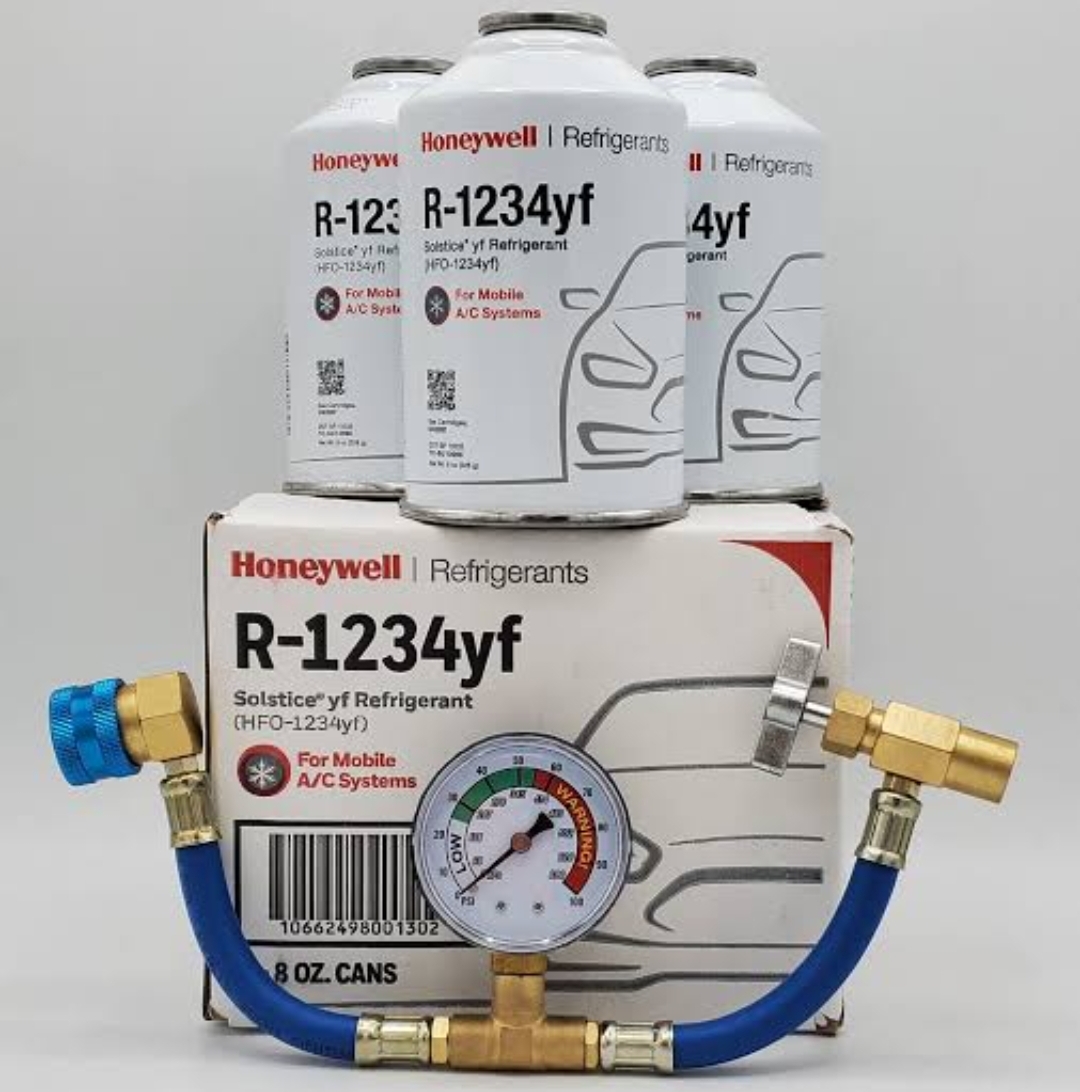The Top 3 Environmental Benefits of Using R1234yf Refrigerant in Automotive Air Conditioning Systems

Technological advances improve the peformance of vehicle climate control systems. New refrigerant formulas deliver cooling efficiency while minimizing environmental impacts. With its lower global warming impact and higher refrigerating capacity, R1234yf offers key benefits for your HVAC system.
Low Global Warming Potential (GWP)
Before the advent of R1234yf, R-134a refrigerant was the dominant standard. Introduced in the early 1990s, it replaced the older CFC-12 formula. CFC-12, also known by the trademark name Freon, was one of the first refrigerants used in automobile air conditioners.
While CFC-12 provided cooling capacity in vehicles since the 1930s, it was later discovered to deplete Earth’s ozone layer — hence the shift to R-134a. R-134a was an eco-friendlier alternative to CFC-12, yet it was also discovered to contribute to global warming. Let’s look at the impact of each of these refrigerants:
- CFC-12: 8,500 GWP
- R-134a: 1,430 GWP
- R1234yf: less than 1 GWP
GWP stands for “global warming potential.” It measures the amount of energy a gaseous emission absorbs over a specific time period when compared to the emission of 1 ton of carbon dioxide. Higher GWP values indicate that a gas absorbs more energy and contributes more to warming the planet.
Contribution to Reducing Greenhouse Gas Emissions
Developed in the early 2000s, R1234yf offers cooling power without the added global warming potential. With its GWP factor of 1, it absorbs less energy than 1 ton of carbon dioxide. With its lower global warming potential, it contributes less to the planet’s overall global warming than even CO2.
Although retrofitting R-134a vehicles with R1234yf is not recommended, you can still find R-134a on the market. If your vehicle already uses R1234yf, you can easily find a R1234yf recharge kit at your preferred aftermarket auto parts and accessories retailer.
Caring for Your A/C System
Using the proper refrigerant is only the first step in maintaining your HVAC system in top condition. Problems with an R-134a system can cause more environmental harm than with an R1234yf system, but periodic upkeep is critical in both cases.
Fixing AC Leaks
Refrigerant leaks undermine your HVAC’s performance. A single leak can reduce cooling capacity, make the system work harder, and cause environmental harm by releasing pollutants into the atmosphere. A high-quality AC leak sealer can patch up leaks until you’re able to perform a more thorough inspection.
Refrigerant Oil
Replenishing your system’s refrigerant oil is important to regular maintenance. Your owner’s manual should offer guidance on how often the oil should be replaced. Refrigerant oil performs several important functions:
- Lubricating internal components
- Sealing rubber parts
- Absorbing internal heat
This lubricant often comes as ester oil AC. Depending on which brand and type you choose, it may also be formulated to extended your A/C compressor’s lifespan.
Improved Safety and Efficiency
Starting with the 2013 model year, most vehicles in the United States began using R1234yf refrigerant. You can’t retrofit older vehicles using R-134a or CFC-12 to use R1234yf, but you can keep your HVAC system in the best possible condition. Your preferred auto parts retailer has everything you need to enjoy cool comfort while minimizing environmental harm.





